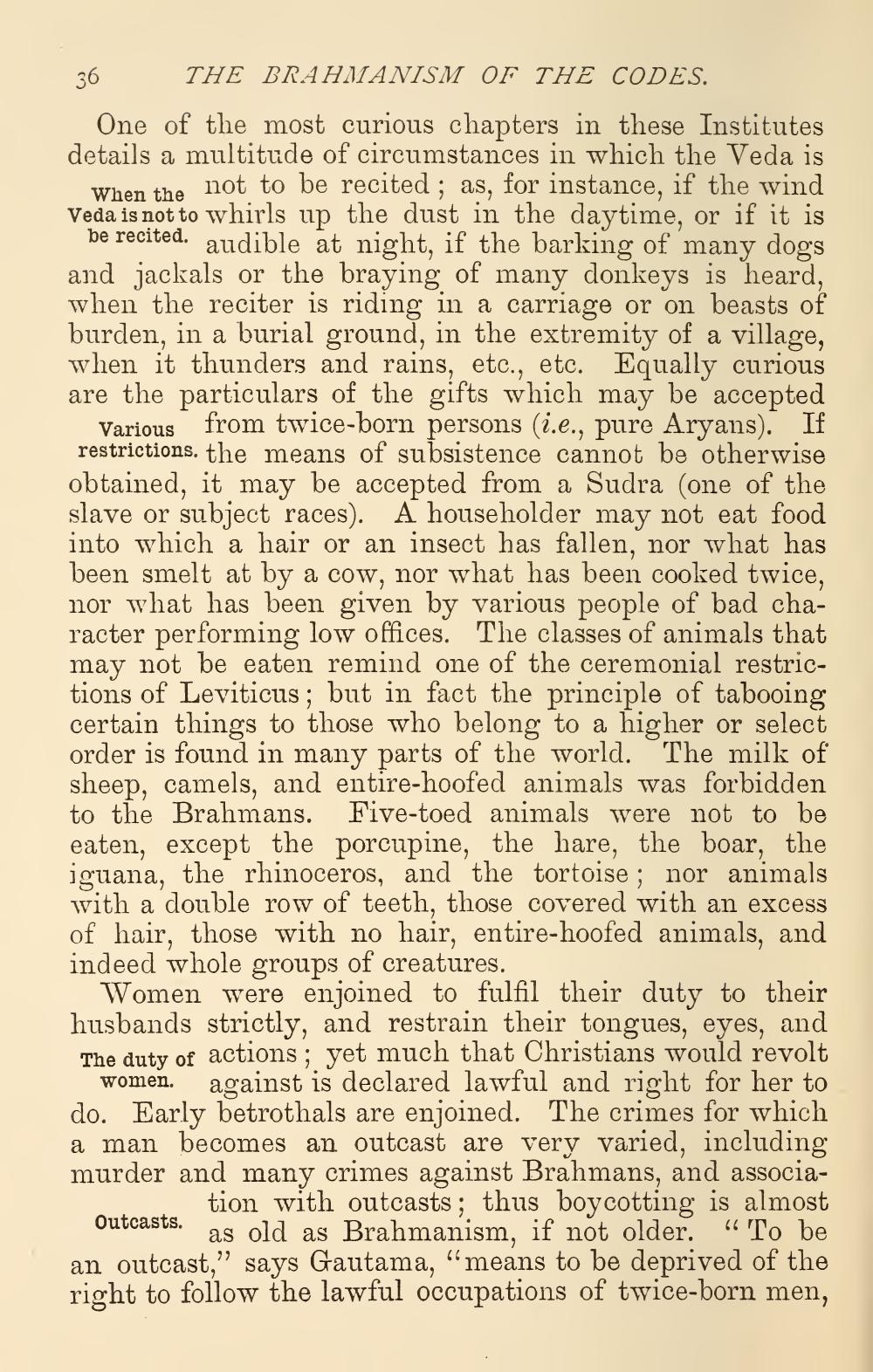________________
36 THE BRAHMANISM OF THE CODES.
One of the most curious chapters in these Institutes details a multitude of circumstances in which the Veda is
When the not to be recited ; as, for instance, if the wind Veda is not to whirls up the dust in the daytime, or if it is
be recited. audible at night, if the barking of many dogs and jackals or the braying of many donkeys is heard, when the reciter is riding in a carriage or on beasts of burden, in a burial ground, in the extremity of a village, when it thunders and rains, etc., etc. Equally curious are the particulars of the gifts which may be accepted
Various from twice-born persons (i.e., pure Aryans). If restrictions, the means of subsistence cannot be otherwise obtained, it may be accepted from a Sudra (one of the slave or subject races). A householder may not eat food into which a hair or an insect has fallen, nor what has been smelt at by a cow, nor what has been cooked twice, nor what has been given by various people of bad character performing low offices. The classes of animals that may not be eaten remind one of the ceremonial restrictions of Leviticus; but in fact the principle of tabooing certain things to those who belong to a higher or select order is found in many parts of the world. The milk of sheep, camels, and entire-hoofed animals was forbidden to the Brahmans. Five-toed animals were not to be eaten, except the porcupine, the hare, the boar, the iguana, the rhinoceros, and the tortoise; nor animals with a double row of teeth, those covered with an excess of hair, those with no hair, entire-hoofed animals, and indeed whole groups of creatures.
Women were enjoined to fulfil their duty to their husbands strictly, and restrain their tongues, eyes, and The duty of actions; yet much that Christians would revolt
women. against is declared lawful and right for her to do. Early betrothals are enjoined. The crimes for which a man becomes an outcast are very varied, including murder and many crimes against Brahmans, and associa
tion with outcasts; thus boycotting is almost Outcasts. as old as Brahmanism, if not older. “To be an outcast," says Gautama, “means to be deprived of the right to follow the lawful occupations of twice-born men,




